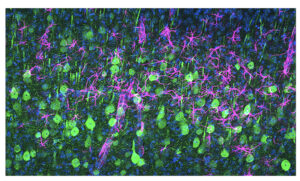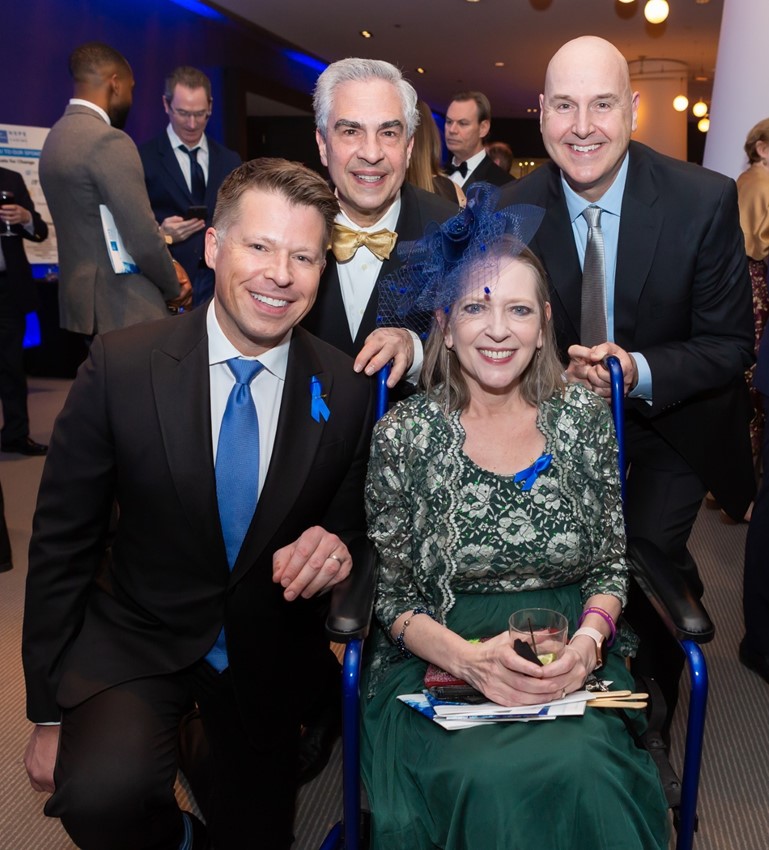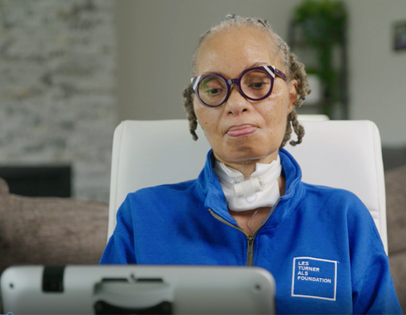Foundation News
Calming the destructive cells of ALS

One of the reasons that ALS can progress quickly is that certain types of cells in the human body will attack diseased upper motor neurons, which are needed to initiate movement. Once those neurons are destroyed, they are gone for good.
Now, scientists from the Les Turner ALS Center at Northwestern Medicine have found a way to calm those destructive cells, offering new hope to slow the progression of the disease. Working with mouse models, the scientists developed a new compound called SBT-272 that repaired mitochondrial membranes and caused the cells to stop attacking the diseased neurons.
“We started giving the SBT-272 to mice, when they began to show symptoms of ALS, meaning when the mitochondria were already defective,” said lead investigator Hande Ozdinler, PhD, associate professor of neurology at Northwestern University Feinberg School of Medicine and a member of the Les Turner ALS Center at Northwestern Medicine. “The compound helped repair the mitochondrial damage, reducing the impact of TDP-43 pathology. Most importantly, astrocytes and microglia stopped attacking. This is then reflected in neuronal health.”
Re-living that special night at the Hope Through Caring Gala

Thank you for making the 35th annual Hope Through Caring Gala a huge success! With over 400 guests in attendance and 50 guests participating virtually, it was an evening full of warmth, laughter, and a few tears. We raised over $600,000 toward care and support for people living with ALS, their caregivers and families, as well as research into the causes, treatment and cures for the disease.
Janie Gobeli, who is living with ALS, presented the Hope Through Caring Award to First Bank Chicago for their longtime support of Foundation grant programs, and Rep. Mike Quigley presented the Harvey and Bonny Gaffen Advancements in ALS Award to Brian Wallach and Sandra Abrevaya for their work in ALS advocacy.
Photos and videos from the evening are available to watch and share on our website. Special thanks to our wonderful emcee, Paul Lisnek, who did a great job of welcoming everyone and showcasing all the amazing work done in the ALS community over the past year.
Someone you should know

As a support services coordinator, Easton Stevenson, LCSW loves supporting people living with ALS throughout their ALS journey – which includes helping them plan the end of their lives, a step that is very important but frequently overlooked.
Easton vividly remembers having an end-of-life conversation with a gentleman living with ALS a few years back.
“This gentleman mentioned that he had been making plans for what he wanted after he died. Unfortunately, he was not able to share any of these plans with his wife because she just couldn’t hear it. So, I met with him privately,” says Easton. “After finishing his notes, I told his wife about them and where they were stored. Later, after her husband passed, she shared with me that the notes were incredibly helpful and that she didn’t have any difficulty in honoring her husband’s wishes because he was able to convey every wish to her, via the written notes.”
Talking about the end of life is not an easy conversation, but it is an essential conversation to have. Easton and the Les Turner ALS Foundation’s Support Services team are committed to empowering people living with ALS to take control of their life and lifting burdens on their families and loved ones.
Cognitive Changes in ALS

Have you noticed any changes in thinking or behavior with your loved one living with ALS?
Join us on Thursday, March 23 from 12-1 p.m. CST for our March ALS Learning Series webinar, “Cognitive Changes in ALS.” Catherine Lomen-Hoerth, MD, neurologist and director of the ALS Center at University of California San Francisco (UCSF) Medical Center, will discuss how ALS affects cognitive functioning. She’ll offer tips on managing these symptoms as well as strategies to support people living with ALS and their families who are impacted by these changes.
The Les Turner ALS Foundation is proud to offer this webinar at no cost to the ALS community. Thank you to the Gilbert and Jacqueline Fern Foundation and Mitsubishi Tanabe Pharma America for sponsoring this webinar.
Continuing to Communicate

Are you having trouble using your voice or writing down your wants and needs clearly to your loved ones and caregivers due to ALS?
Over time, ALS can weaken the muscles you use when you speak and breathe, which can lead to speech changes. ALS can also cause a loss of strength in the fingers, hands, and arms, which may impact your ability to communicate by writing or typing. With technology, you have options to communicate with the people who are most important to you.
Our ALS & Communication guide will provide you with tips and technological recommendations for navigating through those changes. Make sure to speak with your ALS care team so they can customize the best way for you to meet your communication needs.


